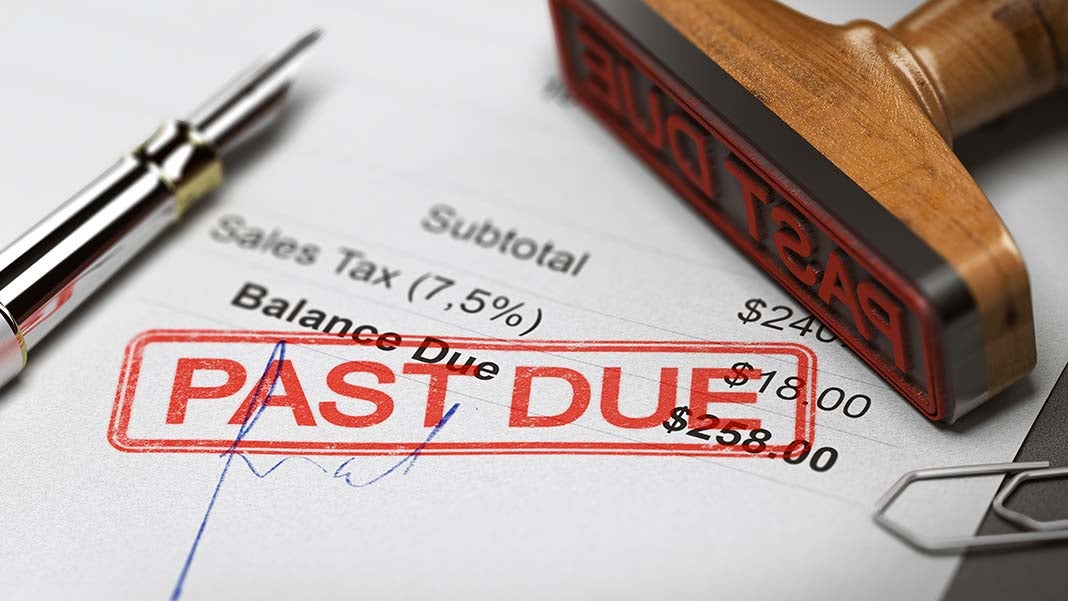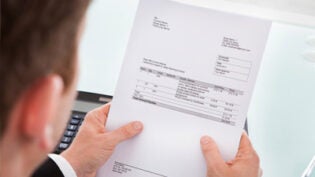
If you own a business, it’s likely you’ve encountered a customer or client who’s late in making a payment for goods or services you provided. Late payments can sometimes drag on for months or even years.
Clearly, you don’t make money if you don’t get paid. So, it’s important that you follow up. But what’s the best way to do that? Here’s how to handle outstanding invoices.
Be gentle—at first
There may be a lot of good reasons why your customer is late in paying an invoice, some of them good ones. Don’t always assume the lack of payment is intentional or that the customer even realizes what’s happening.
Send a reminder letter or email that the invoice is due and ask, in reasonable terms, when you can expect payment. Customers are the lifeblood of your business. Make too many of them mad, and you’ll be looking for a new line of work.
Be a little firmer—follow up
Your next move should be to send a “past due” invoice. If it’s a paper invoice, you can send a copy of the original invoice and stamp it with a “past due” notice. If electronic, make sure that “past due” appears somewhere on the invoice. Give the customer a specific date by which you expect payment.
Alternatively, you could simply attach a copy of the original invoice to a follow-up letter or email. If multiple invoices are past due, you could send a “statement of accounts” summarizing all the invoices due. Your accounting software may be able to generate such a statement.
Be a little more firm
Starting to see the pattern here? If follow-up letters or emails don’t do the trick, you may need to actually call the customer. A personal phone call tends to go a long way in moving the customer off the dime and getting your invoice paid.
Consider allowing the phone call to do double duty. You might mention a new product or service you feel the customer may be interested in. Letting the customer know you still want to do business with them can maintain a goodwill relationship that benefits both of you.
Begin twisting an elbow
If your invoice still isn’t being paid, you may need to put more pressure on the customer. One way to do this is by charging a late fee. It’s always best to have a late fee policy in place right up front when the contract is signed or the transaction is made. A written policy that states when invoices are due and what penalty is involved for overdue payments makes it clear to everyone the consequences of paying late.
Late fees can come in the form of a percentage of the invoice added on for each month the payment is late. Or it could be a flat fee. When the invoice is past due, notify the customer of the new total, including the late fee, by sending a revised invoice.
Twist harder
The threat of a late fee is usually enough to get customers to pay their bills. But if you’re still not having success collecting a debt, then begin resorting to more drastic measures. Write or call the customer to let them know that late fees are beginning to accumulate. Offering to waive the late fee might also help to get the invoice paid while keeping the customer on good terms with your business.
Your next move can be to cut off supplying the customer with any additional products or services. This can get tricky, especially since the customer may take offense. Be prepared to lose the customer if it comes to this.
Call in the big guns
If all your efforts in getting an invoice paid fail, then it’s time to call in the cavalry. A debt collector can usually make progress where you couldn’t. Typically, it costs nothing to hire a debt collection agency, but you will usually have to forfeit 25% or more of the total invoice once it’s paid.
When collection agencies are unsuccessful, you may need to take the drastic step of hiring a lawyer. If the outstanding debt is large enough to merit a lawsuit, then a lawyer can usually get back what you’re owed plus damages.
Cease fire
Should the outstanding invoice not be large enough for a lawsuit, you should consider just writing off the amount owed as a business loss. This is especially true if you use the accrual method of accounting and have already paid taxes on income you thought you were going to make but didn’t. When you write off the loss, you may be able to recoup the tax you previously paid.
A knowledgeable tax accountant can often help you to decide the best course of action for your unpaid invoices. They can also assist you in making sure your business losses are accurately reflected on your tax forms.












